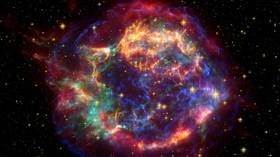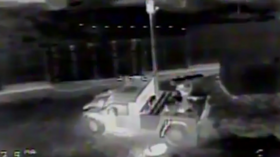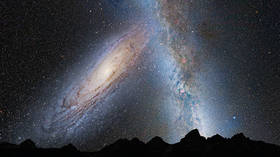Supernovae could be bombarding Earth with COSMIC ‘BULLETS’ travelling at 3,000km a second, scientists warn

A new study purports to solve one of the ongoing mysteries in astrophysics, about whether supernovae shoot debris out at a fraction of the speed of light, and if these cosmic ‘bullets’ hit us at those speeds.
Earth is bombarded daily by small meteors measuring between 1mm and 10cm wide, most of which hit the atmosphere at speeds faster than 17km per second. However, Harvard University physicists Amir Siraj and Prof. Abraham Loeb suspect that some meteors could hit our atmosphere while travelling at a fraction of the speed of light – somewhere in the region of 3,000km per second.
They also go one step further and propose that these cosmic ‘bullets’ could be fired by nearby supernovae that charge them up to sub-relativistic speeds. While the theory has been proposed before, the current search methodology is not set up correctly to find these sub relativistic ‘bullets.’
Also on rt.com Asteroid EXPLODES over Earth after travelling from beyond Mars (VIDEO)The pair developed a model to track the hot plasma that’s expelled by these ultrafast meteors as they smash into our atmosphere. They then catalogued what kind of noise these cosmic faceplants make, so that astronomers could keep a lookout for them.
“We find that a sub-relativistic meteor would give rise to a shock wave that could be picked up by a microphone, and also a bright flash of radiation visible in optical wavelengths – both lasting for about a tenth of a millisecond,” Siraj told Universe Today.
The astronomers propose some combination of infrasound microphones and optical-infrared instruments to detect both the minute – but distinct – acoustic signatures and the incredibly short-lived optical flashes created by these objects in their dying moments. Some 600 detectors established in a global network should do the trick, they say.
While we are constantly on the lookout for any and all space rocks that might pose a risk to the Earth, we may be missing tiny but ultra-fast meteors which could vaporize spacecraft in an instant in the unlikely event they were struck by a piece of supernova shrapnel.
Think your friends would be interested? Share this story!














